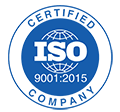 For decades, lead has been considered the paradigm in radiation shielding. The material is cheap, easy to process, and provides durable shielding. Yet, there has been an overwhelming increase in health, safety, and environmental concerns over the mining, processing, handling, and disposal of lead. In fact, lead has already banned from use in many applications, such as motor fuels, paint, and water pipes. If this is any indication, the cessation of lead will continue to spread across industries.
For decades, lead has been considered the paradigm in radiation shielding. The material is cheap, easy to process, and provides durable shielding. Yet, there has been an overwhelming increase in health, safety, and environmental concerns over the mining, processing, handling, and disposal of lead. In fact, lead has already banned from use in many applications, such as motor fuels, paint, and water pipes. If this is any indication, the cessation of lead will continue to spread across industries.
Since radiation was discovered to have adverse effects on the human body, experts have been developing alternative shielding materials that offer reliable protection. Whether you're simply curious or actively pursuing information about radiation shielding, here are a few of the most commonly used materials:
Traditional Lead Shielding
Lead is a chemical element that is soft, malleable, and resistant to corrosion, which makes it an ideal material to use for long-term protection. In its purest form, lead is brittle and unable to be worn as the cloth you typically see in an x-ray room. However, when it's mixed with vinyl and other binders, it can be turned into a flexible and durable material.
Lead has traditionally been used in a variety of applications because of its cost, mass, and radiation shielding capability, but offsetting these benefits are the rising health and environmental concerns. Traditional lead-based materials are now considered to be toxic and disposal issues provide further motivation for the development of an alternative solution.
Lead Composite Shielding
Lead composite shielding involves mixing lead with lighter materials to attain a certain level of protection. These lead-based composite blends are a proprietary mixture of lead and other heavy metals that attenuate radiation. Composite radiation shielding materials are lighter than traditional lead, but are available in the same lead equivalency protection levels.
In 1963, a lead composite gas tank was buried. When it was dug up over 25 years later, it was still in good condition and showed no signs of leakage or corrosion. While it's not the main reason advanced composites have been developed, it certainly provides proof of their longevity.
Lead-Free Shielding
Nontoxic, polymer-metal, composite materials provide an efficient and cost effective way to eliminate the hazards associated with lead materials. It is generally available at lower costs when compared with alternative materials, providing an effective defense against recent lead price increases.
This type of material is created using the same techniques as those in composite engineering, but without the use of lead. Composite molding has allowed experts to create materials that, when combined, offer the same amount of protection as lead composite shielding. Lead-free composites can be custom formulated across a wide range of densities, impact strengths, flexibilities, and heat-deflection temperatures. These eco-friendly, durable materials can be used as a lead replacement for radiation shielding or weighting applications.
Which Material Is The Best To Use?
Radiation shielding materials vary greatly, but these are a few of the most common. Although, all three types of shielding materials have their own features and benefits, there are several factors you will need to consider before making a decision. Traditionally, lead has been the key component in the manufacturing of radiation shielding materials, but recent regulatory concerns have positioned lead as toxic and environmentally undesirable. Lead-free shielding materials offer a viable cost-effective and ecologically sound alternative to traditional lead and lead composite materials.



